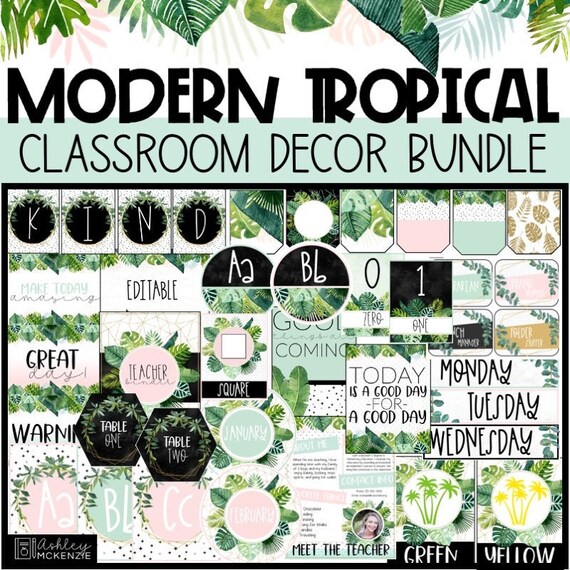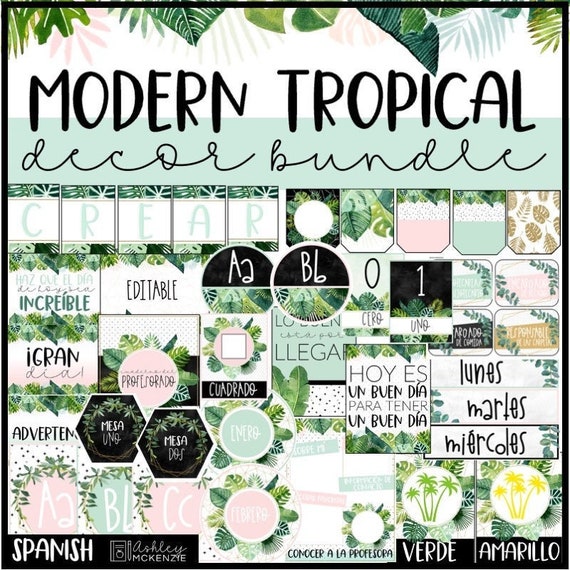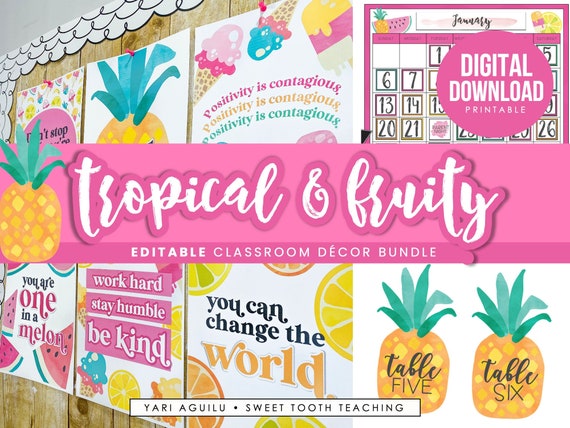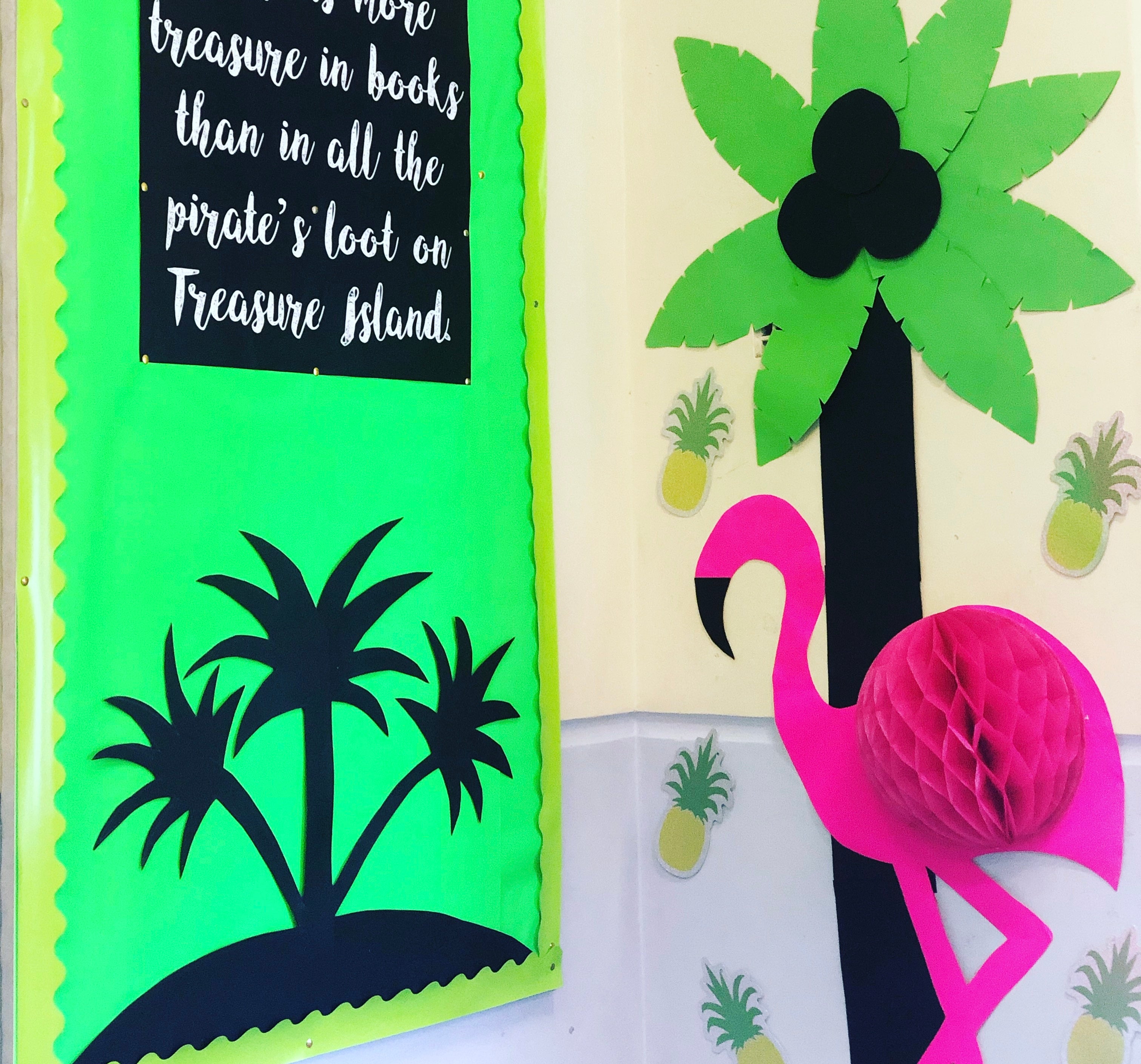Are you feeling the need to breathe new life into your classroom? As an educator who has spent years creating engaging learning environments, I can tell you that a well-decorated classroom can make all the difference. Tropical classroom decor is not just about aesthetics; it’s about creating an inviting space that boosts creativity and learning. In this comprehensive guide, we’ll explore various aspects of tropical-themed decor, including tips, ideas, and even a few DIY projects that will turn your classroom into a vibrant oasis.
Why Choose Tropical Classroom Decor?
Tropical decor can make your classroom feel bright, cheerful, and energizing. Here are some compelling reasons to embrace this theme:
- Boosts Creativity: Bright colors and fun designs stimulate creativity and imagination.
- Creates a Relaxed Atmosphere: Tropical themes often evoke feelings of relaxation and calm.
- Encourages Engagement: A vibrant environment can engage students and keep their attention.
Elements of Tropical Classroom Decor
When decorating your classroom, consider the following elements:
Color Palette
Tropical decor is characterized by vibrant colors reminiscent of the tropics. Think lush greens, bright yellows, deep blues, and warm oranges. Use these colors as your primary palette when selecting decor items.
Examples of Tropical Color Schemes
| Color Scheme | Color Combinations |
|---|---|
| Sunny Beach | Light Blue, Sandy Beige, Sunset Orange |
| Lush Jungle | Deep Green, Bright Yellow, Earthy Brown |
| Coral Reef | Coral Pink, Aqua Blue, Soft Lavender |

Wall Decor Ideas
Walls are the perfect canvas for tropical decor. Here are some ideas:
- Tropical Murals: Consider a mural or wall decals featuring palm trees, sunsets, or tropical wildlife.
- Posters: Hang educational posters with tropical themes, such as ocean life or rainforest ecosystems.
- String Lights: Use fairy lights with tropical-themed shades to create a cozy atmosphere.
Classroom Furniture
Incorporating tropical decor into classroom furniture can enhance the overall aesthetic:
- Brightly Colored Desks and Chairs: Choose furniture in vibrant colors or with tropical designs.
- Outdoor-Inspired Seating: Bean bags or cushions in tropical patterns can encourage comfortable learning.
- Natural Materials: Opt for wooden furniture or decor made from bamboo or rattan.

Classroom Accessories
Small accessories can have a big impact. Consider including:
- Tropical Plants: Use real or artificial plants like ferns, palm trees, or succulents.
- Themed Supplies: Incorporate notebooks, pencils, and other supplies with tropical prints.
- Classroom Rules in Tropical Style: Frame classroom rules with a fun, tropical twist.
DIY Tropical Classroom Decor Projects
Nothing brings more personality to your classroom than decor you’ve crafted yourself. Here are some DIY projects you can try:

Hula Hoop Dream Catchers
Create vibrant dream catchers using hula hoops, colorful yarn, and artificial flowers. Hang them from the ceiling to create a whimsical effect.
Under-the-Sea Bulletin Boards
Transform your bulletin boards into under-the-sea scenes with blue paper as the background and fish cutouts made from colored cardstock.

Tropical Ceiling Decorations
Hang paper lanterns or fan decorations that resemble tropical flowers or fruits from the ceiling to add dimension to your classroom.
Tips for Maintaining Tropical Decor
To keep your tropical decor fresh and engaging, consider the following tips:
- Regular Updates: Change out decor items periodically to keep it feeling new and exciting.
- Incorporate Student Work: Display students’ art in tropical frames to personalize the space.
- Seasonal Changes: Adjust decor with the changing seasons to maintain relevance and interest.

Pros and Cons of Tropical Classroom Decor
Like any design choice, there are advantages and disadvantages to consider. Here’s a breakdown:
Pros
- Creates an inviting and warm atmosphere.
- Encourages creativity and engagement among students.
- Can easily be tailored to fit any educational theme or subject.
Cons
- May require frequent upkeep to maintain freshness.
- Bright colors may not appeal to all students.
- Initial setup can be time-consuming and costly.

Conclusion
Implementing tropical classroom decor can create a vibrant, engaging learning environment that fosters creativity and enthusiasm. As you embark on this decorating journey, remember to involve your students in the process, letting their personalities shine through the decor choices. Whether you opt for small accents or a complete makeover, a tropical theme can transform your classroom into a delightful oasis.
FAQs About Tropical Classroom Decor

What are essential elements of tropical classroom decor?
Essential elements include a vibrant color palette, tropical-themed wall decorations, and accessories like plants, furniture, and seasonal decorations.
How can I maintain my tropical classroom decor?
To maintain your decor, regularly update items, incorporate student work, and adjust the decorations with changing seasons.
Are there any DIY projects for tropical classroom decor?
Yes! DIY projects include hula hoop dream catchers, under-the-sea bulletin boards, and tropical ceiling decorations.
What are the pros of tropical classroom decor?
The pros include creating an inviting atmosphere, encouraging creativity and engagement, and the ability to tailor the decor to fit various educational themes.
What are some cons of tropical classroom decor?
Cons can include the need for frequent upkeep, the potential for bright colors to not appeal to every student, and the initial time and cost involved in setting it up.